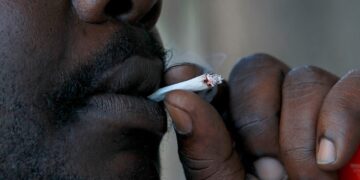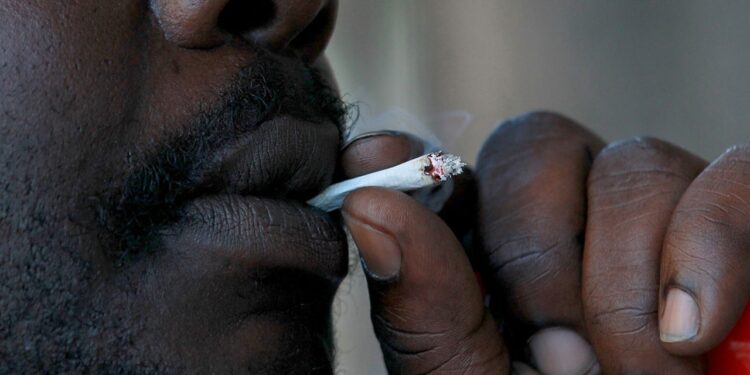By John Ikani
The World Health Organization (WHO) is calling for a continent-wide ban on public smoking and the use of e-cigarettes and vaping products in Africa.
The urgent plea, issued by WHO Regional Director Matshidiso Moeti, coincides with the World No Tobacco Day and underscores the theme of “Protecting Children from Tobacco Industry Interference.”
Moeti stressed the need for stricter measures across Africa to safeguard children from the dangers of tobacco and nicotine products.
Industry Targeting Youth:
The tobacco industry, she warns, is actively targeting young people through manipulative marketing strategies, aiming to create a new generation of addicted consumers.
New and appealing products like e-cigarettes, flavored tobacco, and even tobacco-infused snacks and pouches are being aggressively promoted, particularly through social media campaigns.
This calculated approach threatens to reverse the progress made in reducing tobacco use.
Global Statistics Highlight Threat:
Globally, over 37 million young people aged 13-15 are already tobacco users. In Africa alone, this number stands at a staggering 7 million.
Second-hand smoke poses a significant health risk, claiming an estimated 1.3 million lives annually. These deaths are entirely preventable, as exposure to second-hand smoke increases the risk of heart disease, stroke, respiratory illnesses, diabetes, and various cancers.
Africa Shows Progress, But More Needed:
While the African region has seen a decline in adult tobacco use (from 14.9% in 2010 to 9.5% in 2023), the threat to youth remains. Moeti emphasizes the dangers of social media marketing and the use of influencers to subtly promote tobacco products.
The Tobacco Industry’s Deception:
Moeti exposes the multi-pronged approach used by the tobacco industry. Beyond product development and marketing, the industry spends heavily on promoting misleading scientific studies, lobbying governments, and engaging in deceptive “corporate social responsibility” activities.
These tactics are designed to build brand loyalty among young people and influence policies that prioritize industry profits over public health.
Urgent Steps for African Countries:
To combat this threat, Moeti urges African countries to take decisive action. Here are some key recommendations:
- Strict Implementation of WHO Framework Convention on Tobacco Control (FCTC): This includes robust regulations on marketing new and emerging tobacco and nicotine products, particularly those targeting young people.
- High Excise Taxes and Price Measures: Increased taxes on tobacco products can significantly deter consumption.
Graphic Health Warnings: Implementing effective communication strategies utilizing graphic health warnings can raise awareness of the dangers of tobacco use among youth and the general population. - Countering Industry Interference: Upholding WHO FCTC Article 5.3 is crucial. This article requires governments to implement safeguards that protect tobacco control policies from the undue influence of the tobacco industry.
- Raising Public Awareness: Educating the public, especially young people, about the deceptive tactics employed by the tobacco industry is essential.
- Promoting Alternative Crops: Supporting tobacco farmers in transitioning to alternative crops can offer a sustainable solution and reduce reliance on tobacco production.
By implementing these comprehensive measures, African countries can create a healthier future for their youth, free from the dangers of tobacco and nicotine addiction.




































